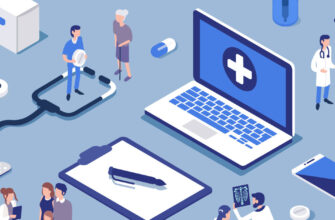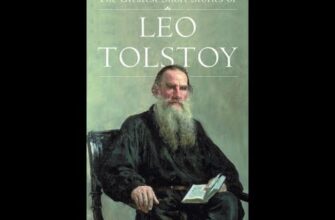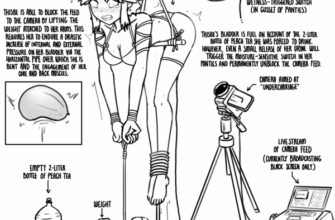In a world where medical science accelerates at breakneck speed, what was once the stuff of science fiction — artificial intelligence diagnosing diseases, genes being rewritten, and human life extended or even designed — is now our tangible reality. This rapid evolution, while promising unprecedented cures and improvements to human well-being, simultaneously ushers in a complex array of ethical dilemmas. The fundamental question isn`t *can* we do it, but *should* we, and if so, *how*?
Navigating the AI Labyrinth
Artificial Intelligence has graduated from a mere assistant to a pivotal player in diagnostics and treatment. Its ability to process vast datasets and identify patterns often surpasses human capability, leading to earlier detection and more precise interventions. Yet, the introduction of AI into the intimate space of patient care raises eyebrows, and more importantly, ethical questions.
Who bears responsibility when an AI algorithm makes an error? Can a machine, devoid of sentience, truly account for the nuances of human suffering or the subtle anxieties of a worried patient? While ethical guidelines for AI in medicine are rapidly being drafted, the core principle remains: AI must serve, not supersede, human interests and rights. It`s about enhancing the quality of care, not merely automating it, ensuring that the human element of compassion isn`t lost in the pursuit of efficiency.
The Genetic Frontier: A Double-Edged Helix
Perhaps no technological advancement sparks more intense ethical debate than genome editing. The prospect of correcting genetic defects responsible for debilitating diseases is undeniably exhilarating. Imagine a future free from cystic fibrosis, Huntington`s disease, or certain cancers, simply by “editing out” the faulty code.
However, the ethical tightrope walk begins when we consider editing human embryos. While therapeutic interventions on somatic cells are widely accepted, the idea of altering the germline (changes passed down through generations) and, by extension, future generations, ventures into uncharted territory. The dystopian visions of “designer babies” — genetically optimized for intelligence, strength, or even aesthetic traits — are no longer confined to novels. This raises serious concerns about creating new forms of social inequality, where “enhanced” humans might exist alongside “natural” ones. Some might even quip that humanity is venturing into a realm traditionally reserved for the divine. But is humanity truly ready to *play God* without a comprehensive ethical playbook?
Reproductive Choices: Empowerment or Ethical Quandary?
Technologies like egg freezing offer incredible liberation, allowing individuals to defer parenthood for career, personal reasons, or medical necessity. It’s a powerful tool for reproductive autonomy. But even here, ethical considerations abound. Is there sufficient “informed consent” given to patients about the real success rates, the emotional toll, and the financial implications of “delayed parenthood”? The illusion of a “risk-free reproduction” must be dispelled by thorough, compassionate dialogue.
Furthermore, questions persist regarding the duration of egg storage, ownership rights over cryopreserved biological material (especially in cases of post-mortem reproduction), and the ethical fate of “excess” eggs — whether they should be donated, used for research, or respectfully disposed of. What seems like a straightforward personal choice quickly unravels into a complex web of societal and philosophical considerations.
The Patient`s Right to Decline: Autonomy vs. Intervention
One of the most profound ethical principles in medicine is patient autonomy — the right of a competent adult to make informed decisions about their own healthcare, even if those decisions are not in their perceived best interest or may lead to dire consequences. A patient can, legally and ethically, refuse life-saving treatment.
However, this doesn`t absolve medical professionals of their duty. Doctors are ethically bound to inform, educate, and, where appropriate, persuade. The true test of this principle arises when children are involved. Cases where parents refuse crucial treatment for their minors (e.g., citing anti-medicine beliefs or parental burnout) present a harrowing ethical and legal quagmire. Protecting the vulnerable becomes an urgent, often challenging, imperative.
Organ Donation: The Veil of Anonymity
In the delicate ecosystem of organ transplantation, anonymity plays a crucial, though often overlooked, ethical role. While living related donors are known, post-mortem organ donation maintains strict anonymity between donor families and recipients. This isn`t merely a formality; it`s a foundational pillar of trust and a safeguard against potential complications.
Anonymity prevents donor families from potentially harassing or burdening recipients, and it shields recipients from feeling obligated or from grappling with prejudices related to the donor`s background. It upholds medical confidentiality, ensuring that the act of saving a life through donation remains pure, untainted by potential social or emotional entanglements. It allows the recipient to focus on healing, rather than the intricate story of the life that made their own possible.
The Continuous Dialogue
The synergy between bioethics and technology is not a battle to be won, but an ongoing conversation. As new medical breakthroughs emerge, so too will new ethical frontiers. The role of bioethics is not to halt progress, but to guide it, ensuring that our advancements remain firmly anchored in human values, dignity, and justice. It is, ultimately, about ensuring that in our quest to push the boundaries of what`s possible, we never lose sight of what is right.







